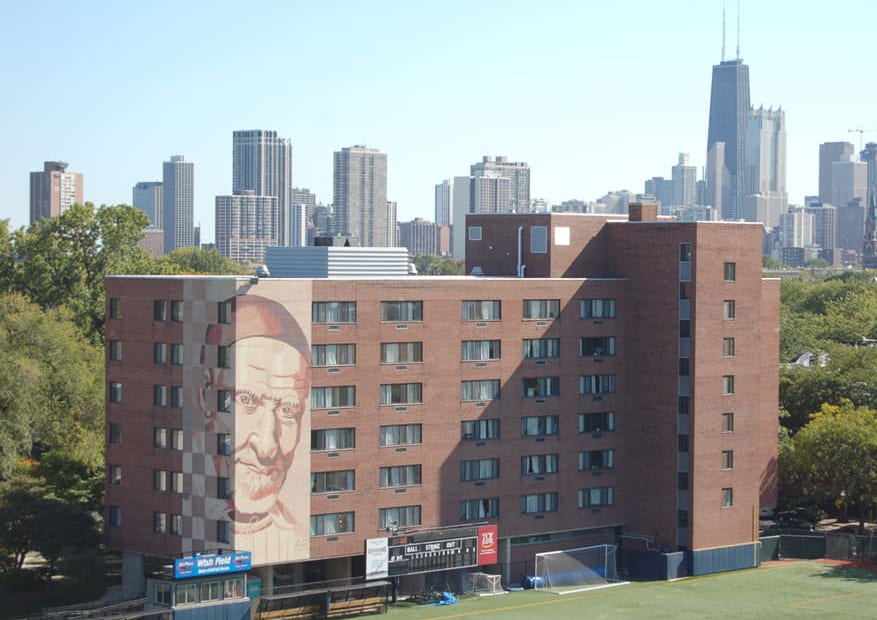In my studies of philosophy, I learned that several existential philosophers, including Albert Camus, asked how we can face and reduce suffering when we ourselves often cause it for others. This profound contradiction is what they call absurdity. Please note that I will be using this existential understanding of profound absurdity throughout this text.
In the context of our Vincentian history, we are now firmly confronting such an absurdity in our complicity in causing, instead of reducing, people’s suffering. Instead of helping people and communities to overcome it, as Vincent de Paul did in his life, we became a significant cause of their pain. The absurdity of Vincentians’ involvement in enslaving human beings and of DePaul University’s engagement in institutional racism needs to be learned, researched, recognized, and confronted with determination. Today we, the Congregation of the Mission, and DePaul University, ought to become partners in the human quest to overcome the systemic harm of racism and discrimination while investing the best of our human, structural, and financial resources to confront all causes of humanity and our planet’s unbearable suffering.
Racism is an affront to humanity. In our current sociopolitical context, the strengthening of racism becomes a specific element of the radical polarization through which minorities are ostracized and blamed for all evil without reason. The white supremacy culture perceives the sociopolitical and economic oppression and disappearance of people of African descent and other minorities as the triumph of the symbolic order of a nation that builds its memory by discursively annihilating others, flatly denying essential elements of their historic collective identity. Slavery and racism dehumanize us partly because they illustrate the absurdity of our human experience. The dehumanization of its victims happens through symbolic, existential, religious, and socioeconomical violence, exclusion, and oppression.
In solidarity with those in the African American community, we must advocate individually and institutionally for their freedom, defend their rights, support their organization, and ally ourselves in constructing a society that makes systemic inequities and racial discrimination increasingly impossible. This is a concrete and effective way for us to confront our history and contribute to overcoming absurdity in our own institutional identity.
Over the past two years as the liaison of the DePaul task force to respond to the legacy of Vincentian slaveholding, I became strongly convinced that we need to institutionally support an awakening of the Black consciousness that is so present in our midst, in organizations and individuals that fight to rescue the identity and existence of all African American communities. Our commitment calls for supporting the liberation of a denied identity and, simultaneously, invites us to become members of a project that makes explicit and confronts the absurdity expressed in so many forms of racism from a national and globalized perspective.
As a DePaul task force, we have been working with people who bear witness to centuries of enslavement and oppression, and we have been encouraging people to fight so that such inhumanity will not be perpetrated on anyone again. The history of slavery inflames us with the necessary conscience to understand that everyone in our society is also responsible, by action or inaction, for the inequities that continue to disproportionately affect Black people today. We all collectively have the duty of historical reparation and to make real the justice that has not yet arrived.
I have learned during my life as a Vincentian missionary that God’s love for the oppressed is a core element of our Vincentian vision and mission. From this perspective, I again apologize on behalf of my community for our absurdities and moral failing, our sinful participation in enslaving other human beings, and the historical and contemporary bias and perpetuation of racist systems and practices that have denied the very heart of our identity and mission in our relationships with African Americans in the United States of America.
On May 18, at 10:30 a.m., we will rename Room 300 in the Richardson Library and the Belden-Racine residence hall to honor Aspasia LeCompte, a woman formerly enslaved by Bishop Joseph Rosati, C.M., one of the first Vincentian missionary priests in St. Louis. This woman represents the enduring centuries-long resistance and resilience of African American communities. Naming prominent places on campus after her will perpetually lift up the life of an incredible Black woman whose legacy deserves to be known. Through Aspasia LeCompte’s story, the realities of Vincentian participation in enslaving people will continue to be remembered as new people join the DePaul community, and our community will forever be reminded that we need to continue to name and confront racism at our institution and in society.
Join us to continue this journey together and to find new ways to structurally design DePaul for equity.
Reflection by: Fr. Guillermo (Memo) Campuzano, C.M., Vice President of Mission and Ministry
